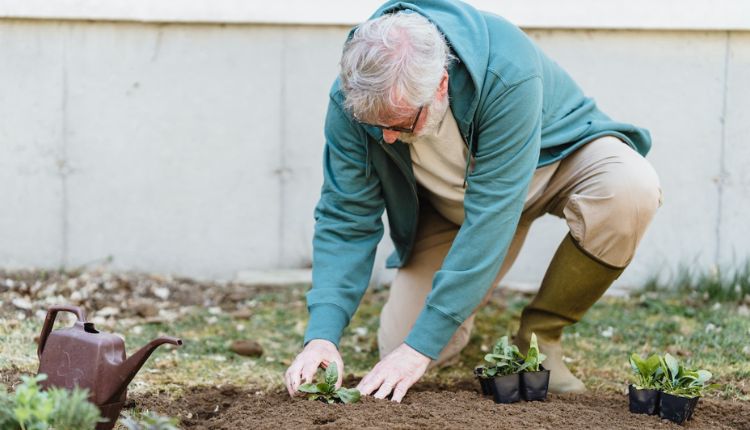
5 Benefits of Gardening for Those Living with Dementia
Interest in gardening has skyrocketed in recent years among older and younger generations alike. Some keen gardeners state that their interest stems from a desire to spend more time outdoors; some enjoy creating aesthetically pleasing green spaces; others have started gardening as a way to have better control of their food supply, while many others enjoy the exercise that gardening provides.
It’s clear that gardening offers a wealth of merits to all age groups and demographics. However, the benefits that it offers those living with dementia are profound.
If you are a primary caregiver for a senior living with dementia, or if you have secured at home dementia care services, know that professional caregivers are often happy to assist seniors with light physical activities like gardening. Even a round of badminton or pickleball might be beneficial! Whatever your care situation, consider dedicating or implementing a couple of hours a week to yard work with the senior in your life.
Taking time to get outdoors and making the most of the gentle exercise that gardening offers provides many benefits for those living with dementia. Here are just a few.
1. Gardening Can Stir Happy Memories
As people advance through the stages of dementia, they can become reclusive, withdrawn, and depressed. However, long-term memories can still be accessed. If a senior in your care was once an avid gardener, the vibrant sensory stimuli of gardening and getting back outside can help to conjure pleasant memories of other springs and summers.
2. Light Yard Work Can Prevent Falls
Those living with dementia may experience a loss of balance and challenges with their gait. Gentle gardening can help those living with a type of the illness retain their centre of balance and their core strength for longer, both of which can help to prevent trips and falls. This is true for all seniors, not just those with dementia diagnoses.
3. Gardening Can Help Sleep Patterns
Fresh air coupled with light physical exercise can help all gardeners obtain a better night’s sleep. Sleep is incredibly beneficial for those living with dementia: it can help the person feel less confused, be more co-ordinated, have better energy levels and feel better in general.
4. Gardening Is a Purpose-Driven Project
Often as we get older, we lose the comfort of having an everyday routine; we no longer have to fulfill mission- or career-driven projects — be it a work assignment, a family obligation or completing a 5k.
Gardening can counter this feeling of aimlessness since it provides a clear end goal. For those living with dementia, seeing the real results of sunflowers drawing tall or flowers forming on tomato stems can offer a true sense of purpose and pride.
5. Gardening Can Lift Feelings of Depression
Depression is prevalent among those living with dementia and Alzheimer’s. There is increasing evidence that being outside and among plants can help those living with mental health challenges. This activity offers exposure to fresh air, greenery and vitamin D, which can assuage feelings of depression, so much so health professionals in the U.K. are encouraging dementia patients to make use of their gardens while pressuring local authorities to increase the amount of green space in communities.
Takeaway
Creating and tending to a garden is wonderful, light exercise for seniors and those living with dementia. Gardening offers physical, mental, and even social benefits for those gardening with a caregiver or loved one. Spending time outside and reconnecting with nature is an attainable way to cultivate feelings of purpose and comfort. Consider gardening with a senior in your life this summer.




